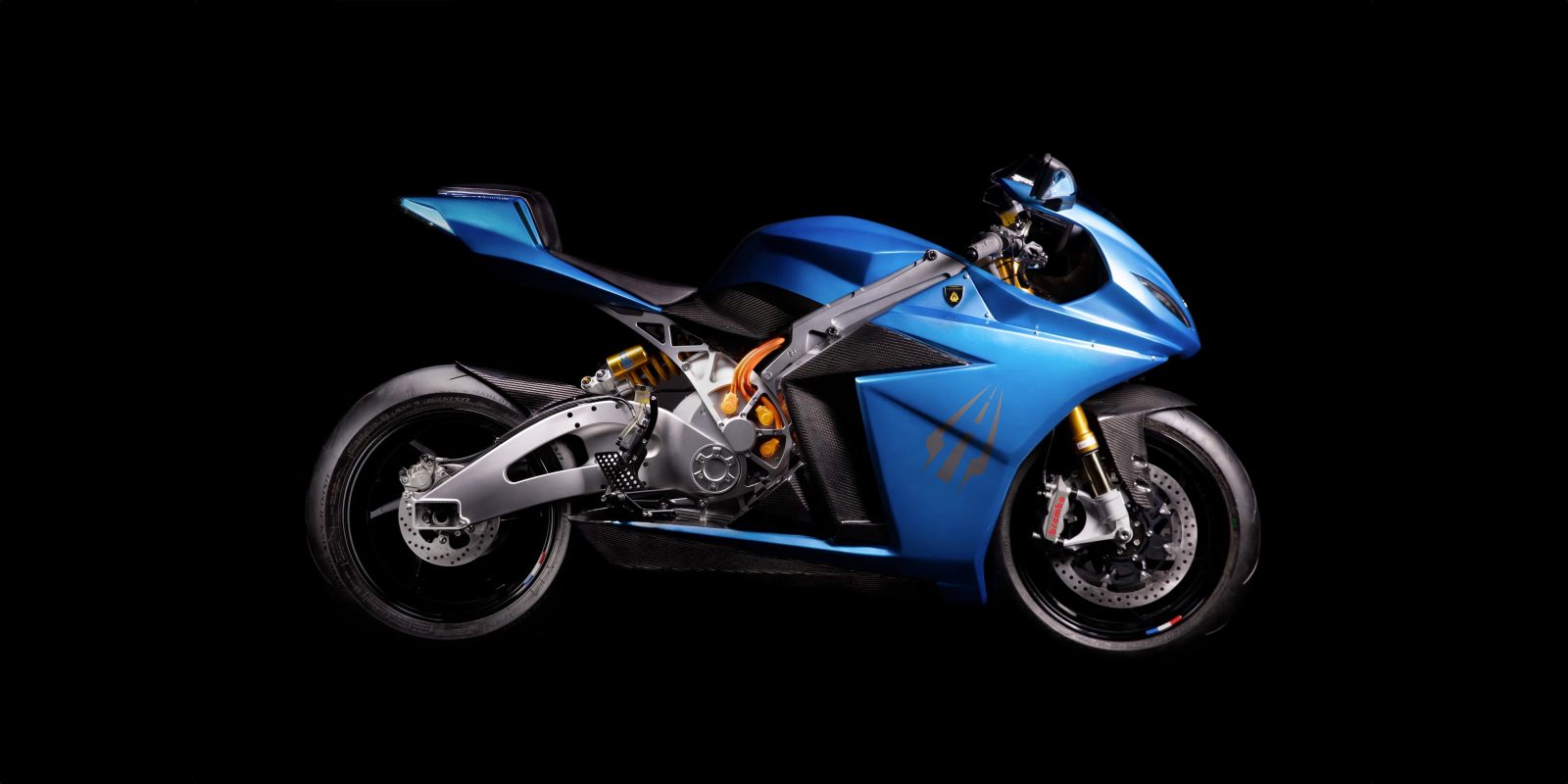Can Lightning’s electric motorcycle really charge as fast as a gas tank fill-up?

Touring, a type of riding that involves long distance trips, has long been the achilles heel of electric motorcycles. While e-motos have developed to the point where they can beat combustion engine motorcycles in nearly every other metric, quick recharging required for long distance riding has yet to reach parity with a gas station fill-up. At least, that was until Lightning Motorcycle debuted what it says is the fastest charging electric motorcycle yet.
The post Can Lightning’s electric motorcycle really charge as fast as a gas tank fill-up? appeared first on Electrek.
Touring, a type of riding that involves long distance trips, has long been the achilles heel of electric motorcycles. While e-motos have developed to the point where they can beat combustion engine motorcycles in nearly every other metric, quick recharging required for long distance riding has yet to reach parity with a gas station fill-up. At least, that was until Lightning Motorcycle debuted what it says is the fastest charging electric motorcycle yet.
Lightning Motorcycles, the Southern California-based boutique e-motorcycle manufacturer, claims that its new fast-charging electric motorcycle can recharge nearly as fast as a combustion engine motorcycle can refuel its tank.
Previously, the quickest DC fast-charging electric motorcycles like the models from Energica or Harley-Davidson’s LiveWire One boasted a recharge time of around 30 minutes for a nearly topped-up battery.
But Lightning claims it can blow those figures out of the water by using new fast-charging battery technology from Enevate. The company’s next-generation silicon-anode batteries claim a much faster recharge time, which Lightning says allows its electric motorcycles to get a nearly full battery recharge in as little as 10 minutes.
That’s still a bit longer than a gasoline fill-up, but since most touring riders generally use a fuel-stop as a chance to stretch their legs after a few hours on a cramped bike, a 10-minute refueling window is fairly reasonable in the touring world.
Lightning has been testing a prototype of the system by using its Lightning Strike motorcycle outfitted with a 24 kWh battery from Enevate.
Lightning Motorcycles CEO Richard Hatfield told New Atlas that the new battery doesn’t just charge faster, it also offers better range:
We’re getting 150 to 170 miles (241 to 274 km) of range at 70 miles an hour (113 km/h) along highway 5. And we’re charging from 0-80% in about 10 minutes, or at nearly a 5C rate, on a level 3 CCS charger. That’s probably the most common level 3 charger at this point, other than Tesla, and I know even Tesla is offering CCS options on some of its chargers.
Hatfield went on to describe the engineering challenges that the higher charging rate required:
So we’ve got 120 kW of electricity going in, for about 10 minutes straight. It’s almost impossible to duplicate that on the discharge side; it’s 300 amps and 400 volts for 10 minutes continuously, there’s just no place you could really do that on the throttle. So it made us re-think all the interconnects, the cabling and the charge connectors, even the contactors. And inside the fairings, we have to move air to cool the components to sustain that level of charging.
To demonstrate the fast-charging rate, Lightning released a video (below) where it pitted two other electric motorcycles against the prototype Lightning Strike with Enevate’s fast charging technology. While the two other bikes aren’t named, they are quite obviously a LiveWire One from Harley-Davidson and an SR/S from Zero Motorcycles.
The LiveWire One offers DC Fast Charging while the Zero SR/S is limited to slower Level 2 charging speeds.
The three bikes are shown charging at the same time, and Lightning set the finish line for the competition at 12 kWh of energy dumped into the batteries. The video shows that the Zero charges at 6 kW on AC power while the LiveWire shows a punchier 20 kW of DC charging power on the dash. The Lightning seems to be on a whole other level though as it is shown peaking at around 104 kW.
The Lightning obviously crosses the 12 kWh mark first, which occurs at around 11 minutes. The LiveWire manages to recharge 3.3 kWh in that time and the Zero only gets in 1.1 kWh.
While Lightning obviously took home the gold in the charging matchup, the charging rate still doesn’t seem to live up to Hatfield’s claim of charging from “0-80% in about 10 minutes.” Rather, the video shows the bike charging from 30-71% in 11 minutes.
Is that fast? Absolutely. Is that faster than any other electric motorcycle you can buy today? Definitely, but it still doesn’t seem to match the 10-minute fill-up claim. Rather, it seems to be around a 40-50% charge in 11 minutes.
If Lightning can actually bring a bike to market with those charging specs, though, that will still be a huge step forward for the industry.
Now we’ll just have to see if they can do it. The company still seems to be producing and delivering Lightning Strike motorcycles, but the last few times I spoke with Hatfield, he still wasn’t providing any figures on just how many bikes are being built. The production volume certainly seems quite low based on the dearth of Lightning bikes seen on social media or YouTube, especially compared to the many Zero or LiveWire owners constantly uploading videos and images of their own new e-motos.
So anecdotal evidence seems to point to low production numbers, but if the company can really offer a 50% recharge in 10 minutes, then perhaps those figures will be rising soon.
Do I need my e-motos to recharge that quickly? Probably not, most of the time. But do I want them to be able to? You can bet your riding pants I do!
FTC: We use income earning auto affiliate links. More.


